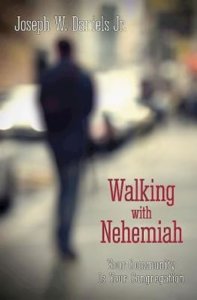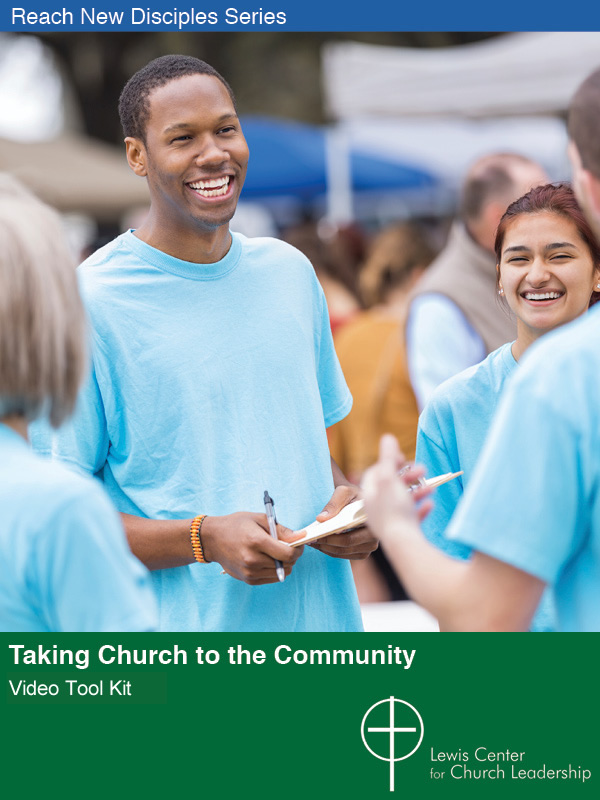Pastor Joe Daniels says vital churches focus outward, engaging their communities, not only to serve but to build relationships and make disciples.
This article was originally published on October 15, 2014.
One of the greatest challenges to the church in the twenty-first century is its lack of connection to its community. Far too many churches today have become drive-in, spiritual social clubs and not the agents of community vitality and life transformation they used to be. As a result, communities are suffering, churches are dying, and far too many people are searching for hope in all the wrong places.
We have a fabulous opportunity to interact, engage, build relationships, and make disciples with the people living and working in the communities surrounding us. We must view the community as our congregation. We must see the corner store and its owner, Ms. Campbell, as our classroom and treat Ms. Campbell as a cherished member, whether she belongs to our church or not. We must see Mr. Taylor, the principal, and his elementary school as an extension campus. We must persuade the mayor of our town, Ms. Kelley, to be a collaborative partner in the rebuilding of broken parts of our neighborhood.
I believe we are at a moment when if we return to our biblical roots of community engagement and covenantal relationships, we will reclaim the church’s rightful place as the center for life and community transformation.
Learning people’s needs and identities
It isn’t that congregations don’t know they are supposed to be outwardly focused. There is conversation in many churches about reaching out to the community. In fact, most congregations have some type of outreach ministry. There are many congregations bustling with food pantries, soup kitchens, clothes closets, and other great services that help people. The problem is that if we ask the people engaged in these serving ministries the names of those they are serving, where they live, what’s going on in their lives, why they are hungry, and what is the deeper need in order for them to reach God’s dream for their lives and their community—the answer for most is “I don’t know.” We are often doing ministry for people, but not with people. Many of us are doing “caring” ministry, but are we engaged in “transformational” ministry?
Jesus always knew the identity of those he touched. Even if he didn’t know everyone by name, he knew the root cause of their human condition; he was always ready to change someone’s life for the better, and he was positioned to help them see the power of being in a deep, abiding relationship with Him.
Forging authentic relationships
The challenge for most people is building authentic relationships that are mutually beneficial—relationships that build community vitality. People need to learn how to forge new relationships that can be cultivated in a way that brings positive community change. It’s amazing in this social-media-crazed world how difficult it is for many people to have a simple conversation with someone else. Particularly someone else they don’t know very well. As we become more dependent on texting, tweeting, and instant messaging, it seems as if we need to regain the art of having deep conversations with one another that build authentic relationships—the foundation of strong community ties.
Embracing and loving our communities
You’ve got to get to know your community and let your community get to know you. You must constantly inspect your community and get to know it like the back of your hand. This does not have to be a complex process. It can be done simply. For example, I conduct prayer services in the gym where I exercise when called upon. I preach and conduct prayer meetings at the family support collaborative down the hill from our church.
If the church is going to engage effectively with the community around it, which by biblical origin we have been commanded and shown how to reach, we must spend time seeing, hearing, feeling, touching, embracing, and loving our mission field. We must behave as if the community is our congregation. The streets are our sanctuary. The back alleys are our altars of blessing. Farmlands are our fields of opportunity. New housing developments become our narthex through which new life is ushered. And strip malls of suburbia become creative places for leading people to salvation. As John Wesley put it, the world is our parish.
 This material is adapted from Joe’s book, Walking with Nehemiah: Your Community is Your Congregation (Abingdon Press, 2014). It is used by permission and available at Abingdon Press, Cokesbury and Amazon.
This material is adapted from Joe’s book, Walking with Nehemiah: Your Community is Your Congregation (Abingdon Press, 2014). It is used by permission and available at Abingdon Press, Cokesbury and Amazon.
Related Resources:
- Getting to Know the “Mayors” of Your Community by Joe Daniels
- The Go-To Church by Bryan Collier
- Taking Church to the Community, a Lewis Center video tool kit resource







